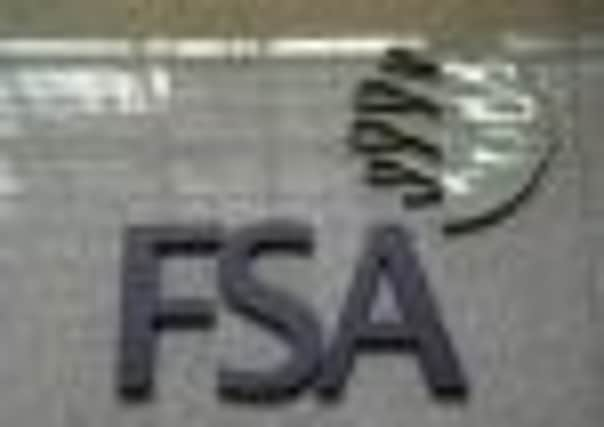Watchdog bares its teeth in clampdown on bonus culture


The financial services sector has been dogged by repeated mis-selling scandals, including billions of pounds of unnecessary payment protection insurance (PPI) sold to consumers and complex interest rate swaps sold to small businesses.
City watchdog the Financial Services Authority yesterday said these scandals have been fuelled by bonus schemes, and said firms will face “intrusive” action if they do not tighten up incentives within 18 months.
Advertisement
Hide AdAdvertisement
Hide AdBanks and financial mutuals have so far provided almost £10bn to cover the cost of the mis-sold PPI, with Lloyds Banking Group alone setting aside £4.2bn to compensate customers.
Halifax-owner Lloyds was last night dragged deeper into the scandal when it emerged it is being probed by the FSA’s enforcement and financial crime division because its failings around sales incentives were so serious. “Some time ago, financial institutions changed their view of consumers from people to serve, to people to sell to,” said Martin Wheatley, the FSA’s managing director.
“People in our financial institutions are being encouraged to sell to us through incentive schemes, bonuses and rewards.”
He said banks could no longer expect to make heady returns and should get back to offering “plain vanilla products” that customers can understand.
Advertisement
Hide AdAdvertisement
Hide AdMr Wheatley said there must be a “cultural shift” across the industry to remove the ingrained expectation of financial incentives.
He added the FSA is not against incentive schemes per se – but said it “has to be structured and managed in a way that treats the people it will affect fairly”.
The FSA published a review of sales incentives at 22 firms, with most showing deficiencies that encouraged mis-selling.
The review found one firm had a “first past the post” incentive, where the first of 21 sales staff to reach a target could earn a “super bonus” of £10,000.
Advertisement
Hide AdAdvertisement
Hide AdThe watchdog also saw a sales person lie about the price of a product to increase his bonus, while another rushed through sales before the end of a quarter to avoid a pay cut.
“If we think in a year to 18 months’ time the industry has not cleaned up its act, then we will revisit it in a much more intrusive way,” said Mr Wheatley.
The new Financial Conduct Authority (FCA), which along with the Prudential Regulation Authority (PRA) will next year replace the FSA, will police the changes.